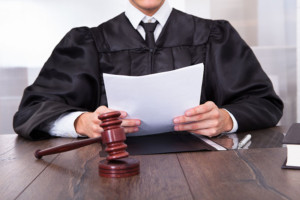Dietary supplement manufacturer Herbalife recently disclosed that U.S. Securities and Exchange Commission started probing it over an alleged foreign corruption fraud. According to a securities filing published on January 20, the Los Angeles-based company may be accused of bribing some foreign officials in China. Although the company is going to start its own independent investigation, the SEC asked its records for its civil anti-corruption litigation. In addition, the U.S. Justice Department is currently evaluating whether Herbalife may have violated the Foreign Corrupt Practices Act (FCPA).
The probe focuses on the company’s single largest investor and shareholder, Carl Icahn who owns almost one-quarter of the herbal supplement maker. With a stake worth nearly $1.2 billion, he is one of President Donald Trump’s advisers. In the past, Trump described the FCPA as a “horrible law” that caused several disadvantages to many U.S. companies who operate overseas.
In its last report, Herbalife explained that it is currently not able to predict the duration, scope or outcome of the investigation, but it’s actively cooperating with the SEC through the process.

In July 2016, Herbalife paid a $200 million refund to its distributors and consumers to compensate them for their deceptive multi-level marketing program. The Federal Trade Commission (FTC) accused the company of leading a misleading advertisement campaign that cheated consumers into believing they could earn significant profits by selling personal care products as well as nutritional and diet supplements. According to FTC charges, the compensation structure did not adequately reward distributors, and unfairly forced them into recruiting others and purchasing their own products in order to advance in the marketing program. A vast majority of these newly recruited distributors actually never gained any profit, and usually ended losing their own money and, in many instances, even their previous jobs, causing them substantial economic injury.
The settlement required Herbalife to revamp its own reward system and to pay an Independent Compliance Auditor (ICA) to evaluate its performance and monitor its adherence to the new rules.
Article written by: Dr. Claudio Butticè, Pharm.D.
Do you have a valid claim?
If you witnessed any widespread suspicious activity within your workplace, you might have a chance of becoming a whistleblower by reporting an ongoing fraudulent scheme. However, to increase your chances of success, you must be sure to back up your claim with substantial evidence or privileged information.
A Quick Whistleblower Checklist
Is the fraudulent scheme widespread enough?
Has the fraud been perpetuated for years or involves large sums of money?
Do you possess any physical evidence of the fraud (documents, forged signatures)?
Do you have access to privileged information which may help our investigators?
Do you work as an insider within the company perpetrating the fraud?
Did you witness any ongoing illegal behavior within your workplace?
Have you been forced into taking part in any suspicious corporate activity?





